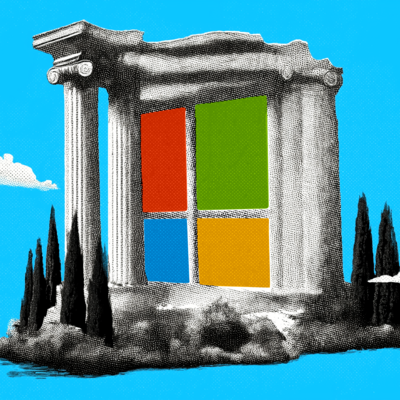
Sponsored By: Glean
This essay is brought to you by Glean, the AI-powered search for your work. Imagine having Google and ChatGPT, equipped and optimized for your workplace, at your fingertips, that is the power of Glean.
When you’re extremely agreeable like me, you often end up sipping coffee with strangers you met over email.
“Hey, do you want to do coffee?” is a sentence I can’t say no to for reasons of personality. If you’re my college roommate’s first cousin who happens to be starting an AI business, my agreeableness kicks in, and I find my hands typing “When and where?? I’d love to…” before the rest of my brain even knows what happened.
For me, doing my email is as dangerous as a gambling addict walking up to a slot machine with a briefcase full of dollar bills. Opening every email is like pulling the lever, and if there’s a Calendly inside, I’ve hit the jackpot. If I didn’t devise strategies to pump the brakes on this habit, I’d have wall-to-wall coffee meetings until Q4 of 2030.
I know what you’re thinking: if I like coffee meetings so much I should’ve just been a VC. It pays better, and my parents would be able to explain to their friends what I do. To which I reply: I don’t really like coffee meetings; I just can’t say no to them.
I’m not trying to be this way. It’s an innate feature of my personality. As I mentioned above, psychologists call this personality trait agreeableness. Agreeableness manifests as “behavior that is perceived as kind, sympathetic, cooperative, warm, frank, and considerate.” (Good!) But there’s a dark side.
People dislike people pleasers and wish to expel them from groups. Agreeable employees earn significantly less over their lifetimes than their disagreeable peers. Agreeable people seem to be more judgmental than their disagreeable peers—they just might not say anything about it. (This one checks out.)
Here’s the other unfortunate problem: personality traits like this are fairly stable over a lifetime. In fact, agreeableness generally increases as you get older. Uh oh.
There is one hope for me, though: AI Dan.
As AI advances, its ability to model personalities is increasingly good. It can mimic the different facets of my personality—my agreeableness, neuroticism, openness to experience, and more—to such a degree that it can predict what I might say in response to my emails. And if it can predict that, it might allow me to tune my temperament in the same way that I might adjust the volume on my phone.
And that would change my life—and yours—immensely. Let me explain.
What is personality?
Personality is how you behave independent of a particular situation. It’s sort of like what would happen if you took a long-exposure photograph of yourself moving around your living room. You’d see your blurry outline in all of the areas you usually go to—your favorite corner of the couch, the door to your kitchen—and you’d also see the empty spaces where you don’t go—the plant you haven’t watered in three months.
This photo wouldn’t allow you to predict where you are at any given minute of the day, but it would give you a snapshot of where you tend to be on average.
That’s what personality is: it’s a blurry snapshot describing your behavior over long periods of time independent of context. There are many ways to break down personality, but the most popular and scientifically validated is called the Big Five. It describes five major personality traits:
- Openness to experience: how creative, imaginative, curious, and receptive to new ideas you are
- Conscientiousness: how organized, responsible, dependable, self-disciplined, and planning-oriented you are
- Extraversion: how outgoing, sociable, energetic, assertive, and action-oriented you are
- Agreeableness: how kind, affable, cooperative, and empathetic you are
- Neuroticism: how much you experience anxiety, anger, depression, and emotional instability
Personality is measured by personality tests: quizzes that ask you about how you behave and feel day to day. Based on your responses, the quiz can tell you how agreeable, conscientious, or neurotic you are relative to other people. There’s a lot of debate about the scientific status of personality tests in general, but the Big 5 is fairly scientific. Studies suggest that Big 5 traits are heritable, consistent across cultures, and can predict important life outcomes like job performance, relationship success, and academic achievement.
But as of 2023, it’s not just humans who have personalities. LLMs have them, too.
LLMs can take on a personality
In a paper published in July called “Personality Traits in Large Language Models,” DeepMind scientists examined whether they could get LLMs to accurately simulate and change its personality based on the prompt. The answer is yes.
The Only Subscription
You Need to
Stay at the
Edge of AI
The essential toolkit for those shaping the future
"This might be the best value you
can get from an AI subscription."
- Jay S.
Join 100,000+ leaders, builders, and innovators

Email address
Already have an account? Sign in
What is included in a subscription?
Daily insights from AI pioneers + early access to powerful AI tools








.png)

Comments
Don't have an account? Sign up!
Another great post! I really enjoy reading about how LLMs may take up a personality. In medicine, so-called Digital Twins have been explored to model disease at a personalized level, merging details about an individual with general knowledge about that disease. This could help better treat these individuals. This has traditionally been limited to processes that we understand well, such that we can model them. I believe LLMs may help us to open up this area of medicine to the psyche... See https://www.transformingmed.tech/p/how-happy-is-your-virtual-brain-the
@mail_5301 digital twins are fascinating, that's really cool. thanks for sharing!
@danshipper I'd love to learn a bit more about your process. I spend a lot of time thinking about how to help brands build a consistent storyline behind a range of outputs. An approach like this might be another way to come at the problem.
I've also got a few new AI tools that I'd be interested in testing for you if you're serious about building out an AI assistant/agent who reacts like you to questions.